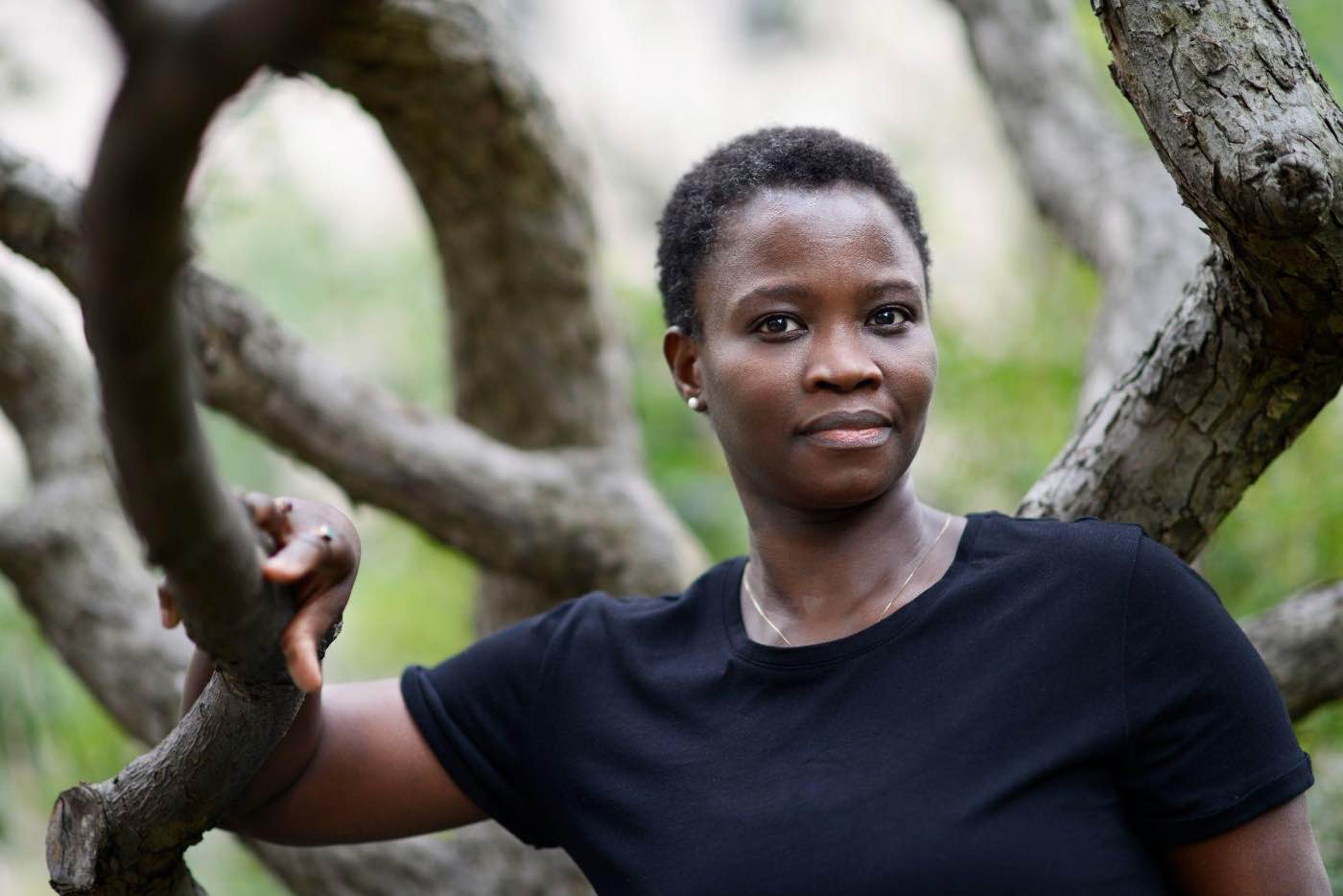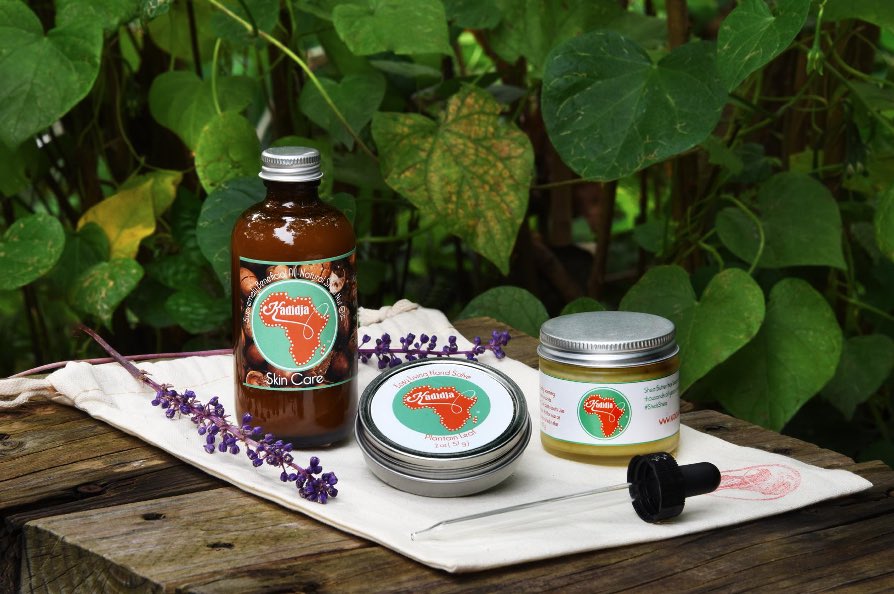From rosewater to charcoal, the beauty industry seems to always be touting a new magical ingredient. But for the people of West Africa, shea has been a fruit of life for centuries, using it for its edible fruits, cooking oil, as well as a moisturizer for skin, hands and hair.
Originally from Burkina Faso, Kadidja Kabore-Lamport grew up with an appreciation for shea, a butter extracted from the nut of a shea tree. When she moved to America in 2002, she made sure to pack some shea in her luggage, anticipating she’d need it for the cold New York City winters. “I started to share my shea products with friends and family and they loved it,” she says.
She settled in the East Village where she’d raise two children and worked part-time as a seamstress and a volunteer in her community. By 2015, as her children got older, she shifted more attention to growing Kadidja.nyc into a business.

Kadidja.NYC all starts with partnering with women based in Ghana who make and ship the raw ingredients to Kabore-Lamport, who then transforms the shea into hand salve, lip balm, soap and more. Her business now has more than 20 products, which the founder handmakes in her home kitchen. She is meticulous about formulating the products which include other ingredients like beeswax and sunflower oil from upstate New York. But shea is her prime component. Whereas commercial brands use only 5% shea butter, Kadidja products are made of 60-70% pure shea.
“I use imported shea through a group of women in Ghana and Burkina Faso,” says Kabore-Lamport. “These women are literally my sisters. I have been working with them for years and it has been empowering to work with shea, something we grew up with.”
She reached out to stores in her neighborhood and found a home in Live Live Organic in the East Village. “When I started the business I noticed this local store with all-natural ingredients,” she says. “I admired their curated products so I just walked in and talked to them about my products and if they would carry it in their stores.” She has also set up shop at farmer markets, as well as Tompkins Square Park.
While her items are now stocked in two local boutiques in the East Village, Kabore-Lamport says most of her sales come from her website. While shea originates in West Africa, she is proud that it is made and sold in New York City. “This is where I raised my children, this is where I started my business,” says Kabore-Lamport.
When it came to picking a domain for her business website, she chose .NYC. “I want people to think about where the shea comes from, and where it goes. I want people to think about the geography of the shea, and the journey of their products. I want people to know I am a New Yorker and it is where I am now and where I make my finished products.”

But by no means are her customers solely from NYC. She has loyal customers across the country, from Seattle to California
“I’m surprised they found me,” she says, “I’m not a big sales person. I try to tell friends and I’ve grown mostly by word of mouth.” So far, her bestselling item is the Kadidja Workout Secret Lotion, a moisturizer that also soothes body aches and sore muscles using just a few natural botanical ingredients.
While Kabore-Lamport is passionate about growing her business, she has. never abandoned her love for her community. Last year, she garnered support from her neighborhood to create more than 100 care packages for frontline health workers. This year, she teamed up with the two local schools her sons attend in the East Village to launch her “Teacher Appre-SHEA-tion” project, providing care packers for teachers in both schools.
She advises aspiring entrepreneurs to “start small and think big.” As a member of MADE NYC, she says being proactive about seeking support groups and local resources can be a game changer. Her goal for 2022 is to land at an incubator where she can make her products at scale.
Says Kabore-Lamport, “I can use a larger space where I can make my products and invite others to see how it’s made and perhaps make some shea for themselves.”


